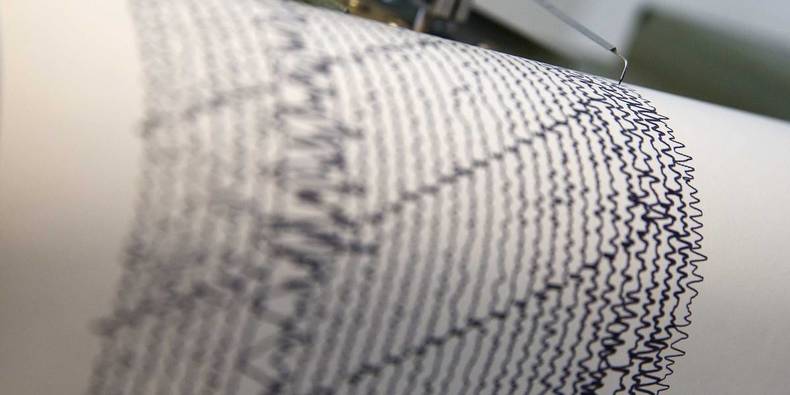
The department R&D Seismology and Acoustics covers the field of mechanical waves in the solid earth, the atmosphere and the oceans, approached from the angles of seismology and acoustics. The department is responsible for the real-time determination of the epicenter, magnitude, and the depth of both tectonic and induced seismic events in the Netherlands, and the attribution of their causes. To this end, data are acquired (operation of an extensive national seismic and acoustic network), interpreted (analysis and research), and distributed (data dissemination).
Regional hazard maps provide information about the probabilistic seismic loads, for example as a result of gas extraction from the Groningen gas field. R&DSA contributed to the building code for earthquake resilient building in Groningen (NPR-9998). R&DSA is also involved in EBN’s (Energie Beheer Nederland) development of new tools for the assessment of seismic hazard for other types of subsurface activities, such as geothermal energy and carbon capture & storage. Independent monitoring of geophysical events plays a decisive role in determining whether an operator is liable for the damage to houses, buildings and infrastructure in Groningen and other regions. The department has an independent, authoritative advisory role to national government, the industry, and the general public in these matters.
R&DSA acoustics related activities concern the detection, localization, attribution and analysis of sub- and supersonic events (e.g., nuclear tests, meteors, aircrafts, rockets, or bomb induced sonic booms, MH17 crash, industrial explosions, industrial activity). Scientifically, the department has a strong position in the detection, characterization and modelling of infrasound propagation in the atmosphere and the oceans. This includes the weather dependence of sound propagation and the reconstruction of atmospheric and oceanic conditions from acoustical data.
The department monitors the volcanic and seismic activity on and near the volcanic islands of Saba and St. Eustatius by operating a multi-sensor network comprising seismometers and Global Navigation Satellite System (GNSS) instruments. Seismic data are transmitted in real-time to the Pacific Tsunami Warning System (PTWS) for issuing tsunami warnings for the Caribbean.
R&DSA has a strong position in the international acquisition and distribution of acoustic and seismic data. Data are contributed through ORFEUS Data Center to the European Integrated Data Archive (EIDA), providing open and unresricted access to these data by standardized services. The department also is responsible for the detection, localization, and characterization of global nuclear events and advises the national government and Comprehensive Nuclear-Test-Ban Treaty Organization on these matters. Other international projects focus on:
The department of Seismology and Acoustics is involved in the KNMI Multiannual Strategic Research (MSO) programs:
Auxiliary information on the department activities is provided by a few selected researchers that present their work on their individual webpage (link below). Here not all research staff is represented. All publications of the department can be found in the KNMI publication database.